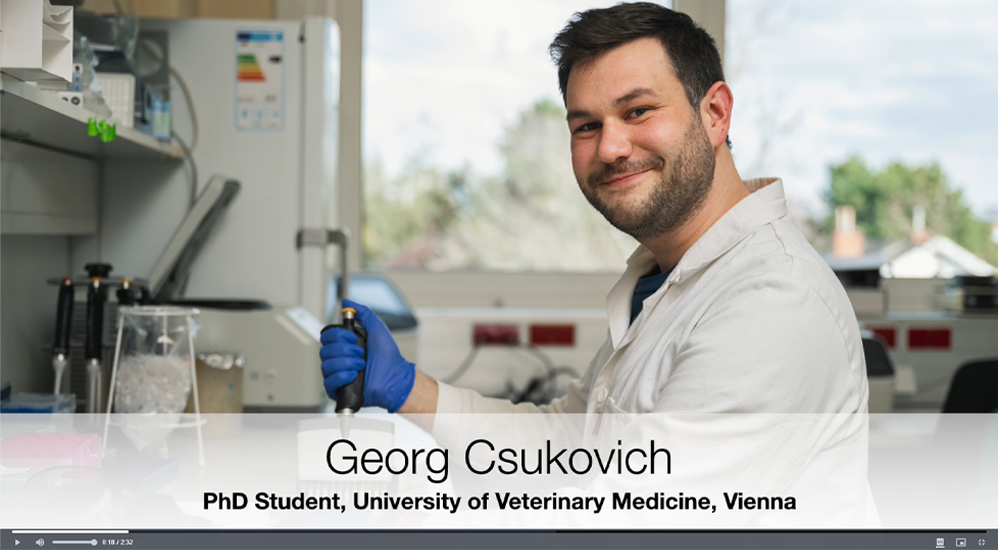Georg Csukovich
Small Animal Internal Medicine
University of Veterinary Medicine of Vienna
Disease modelling in canine intestinal organoids
Help me to win the Young Researcher
Award 2023 from Promega.
Why should you vote for me!
People should vote for me to help us find out more about the intestine of our best friends – dogs – in health and disease. Gaining more knowledge about the canine intestine does not only advance animal health but can also have great added value to human medicine as inflammatory bowel disease is a disorder that also affects lots of people.
Abstract
Apical-out intestinal organoids are a relatively simple method of gaining access to the apical cell surface and faced increasing popularity over the last few years. Apical-out organoids can thus be used for disease modelling to compare differing effects on the basolateral vs. the apical cell surface. However, these “inside-out” organoids die relatively quickly and cannot be propagated as long as their basal-out counterparts. Here we show that apical-out organoids have drastically reduced proliferative potential as evidenced immunohistochemical staining and the incorporation of the thymidine analogue EdU. This has an immense impact on research findings since the proliferation status affects several signalling cascades and ultimately lead to wrong interpretations of data.

Describe the activity of your laboratory in a few lines:
Our lab is interested in the gastrointestinal tract of small animals, especially the intestine of dogs. We seek to understand the complexity of the intestinal epithelium by different analyses ranging from next-generation sequencing, over western blotting to confocal imaging and different cell-based assays. In-depth characterization is key to understanding how different diseases like inflammatory bowel disease develop.

Tell us something about your scientific background :
- BSc in Biomedicine & Biotechnology (University of Veterinary Medicine, Vienna)
- MSc in Molecular Cell and Developmental Biology (University Innsbruck)
Can you describe yourself in 3 adjectives?
Diligent, meticulous, sarcastic
If you were a famous scientist, who would you be?
Niels Bohr
What are your other interests outside of science?
Photography, reading, movies and hiking